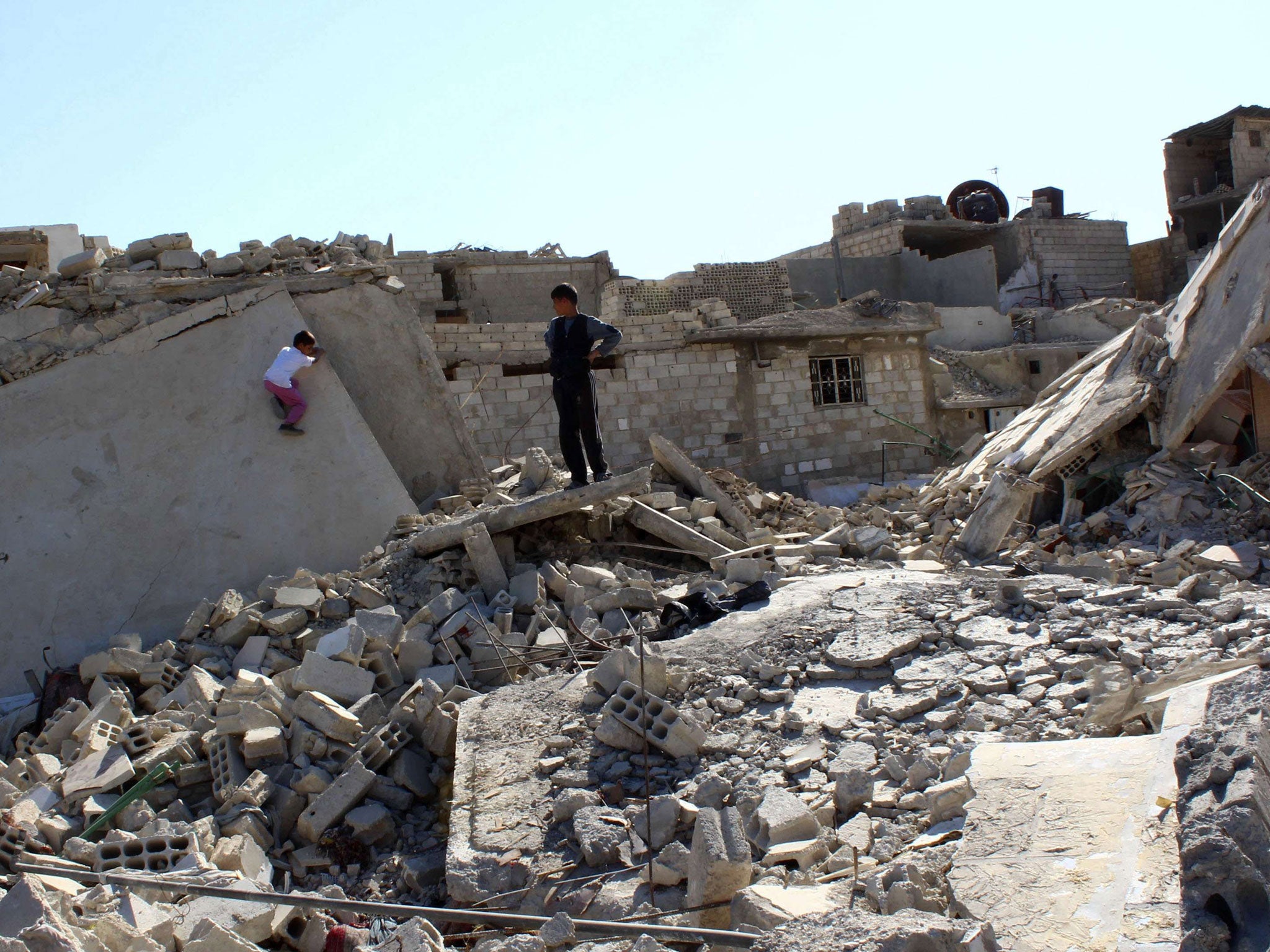Syria's chemical weapons: The deadly serious challenge begins
UN-sanctioned inspectors have already begun to destroy Syria’s arsenal. But with as much as 1,000 tonnes of sarin, mustard gas and other neurotoxic agents spread across dozens of different locations, the task remaining is huge

Fighting in the Syrian civil war rages on but there was rare praise on Monday for the regime of Bashar al-Assad for its early cooperation on starting down the long road of implementing the international accord to disable and remove its arsenal of chemical weapons.
John Kerry, the US Secretary of State, was cautiously upbeat, noting that physical progress had already started under supervision by inspectors of the Organisation for the Prohibition of Chemical Weapons (OPCW), barely a week after the deal was enshrined in a hard-fought UN Security Council resolution in New York.
Officials with the Hague-based OPCW confirmed that government workers armed with grinders and blow torches had begun the work on Sunday of rendering useless missiles and warheads meant for the delivery of chemical agents. It was an “excellent” first day, one OPCW official commented. The goal, considered ambitious by many, is to entirely eliminate the stockpile by the middle of next year.
“I think it is extremely significant that yesterday [Sunday], within a week of the resolution being passed, some chemical weapons were already being destroyed,” Mr Kerry told a joint news conference with the Russian Foreign Minister Sergei Lavrov on the fringes of an Asia-Pacific summit in Bali, Indonesia. “I think it’s also credit to the Assad regime for complying rapidly, as they are supposed to,” he said. “I’m not going to vouch today for what happens months down the road, but it’s a good beginning, and we should welcome a good beginning.”
It is only a month ago that the US was seeking international support for military strikes against Syria after sarin gas attacks on suburbs of Damascus, which Western governments pinned on the Assad regime.
Both Mr Kerry and Mr Lavrov were also set to meet with the UN special envoy on Syria, Lakhdar Brahimi, to discuss the parallel plan to convene peace talks between the warring parties in Geneva in mid-November. At the weekend, Mr Brahimi warned he still could not guarantee any such talks would take place. Hurdles include a demand by opposition leaders in exile that they are accompanied by a commitment from Assad to step down.
Opposition and rebel figures also continued to voice suspicions over the chemical weapons deal, arguing it has only given Assad and his army new legitimacy and leeway to press forward with its military campaign against them. Recent weeks and months have seen some gains for the regime including reports on Monday that its forces had reopened a vital road link between Damascus and the country’s largest city, Aleppo.
“It is all about giving Assad more time to kill more people. And here he is, using Scud [missiles] and recruiting fighters,” Susan Ahmad, an opposition activist in Damascus, told Reuters. “The international community is celebrating the victory of keeping Assad as president despite the fact that he has killed hundreds of thousands.”
Even with the quick start, the task of removing the whole chemical stockpile remains daunting. Once munitions are destroyed, the inspectors must turn to the roughly 1,000 tonnes of sarin, mustard gas and other neurotoxic agents that are said to be spread through as many as 45 different locations in a country convulsed by conflict. Their destruction will need the cooperation not just of the government but also rebel forces.
An advance team of top OPCW officials who have been discussing the disarmament plan with the regime in Damascus were headed back to their headquarters in The Hague last night and said that a first report to the UN Security Council on plans for the future would be submitted on 27 October. The OPCW said in a statement that those who left Syria had held “constructive” talks with the government about the details Damascus has provided about its programme. Syrian authorities have been “cooperative,” it said.
Join our commenting forum
Join thought-provoking conversations, follow other Independent readers and see their replies
Comments
Bookmark popover
Removed from bookmarks